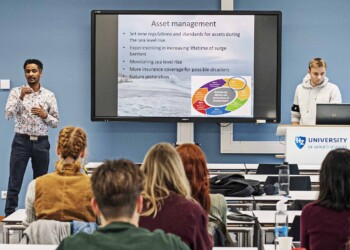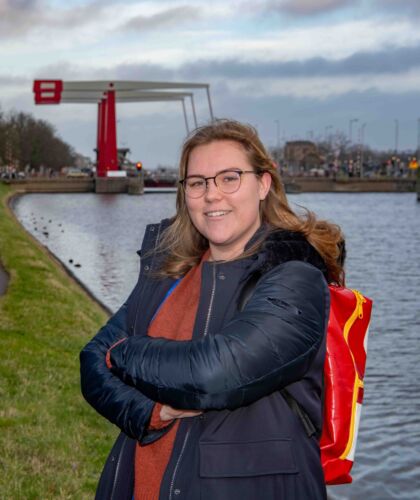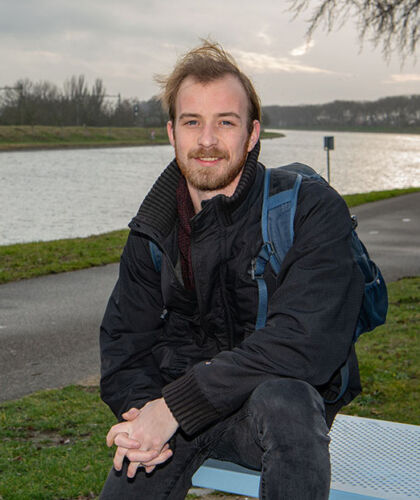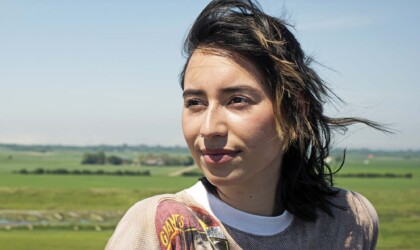Assessment programme
The assessment programme of this master consists of various types of assessments:
- A written knowledge test for the theoretical background
- A deliverable. This may differ per living lab, but examples are a design and/or a research report;
- An assessment in which you reflect on your competences
- A portfolio with evidence:
- An essay in semester 1
- Semester 2 & 3: a scoping report
- Self-assessment
- Evidence of your own choice
Housing
The colleges will support you, if required, in arranging on-site accommodation. Either by offering accommodation themselves or by putting you in touch with parties who can provide it.
You will find more information on accommodation on these pages:
Costs
Tuition fee
- Dutch and European (EEA) students pay the statutory tuition fee for participation in the River Delta Development Master’s programme.
- Non-EEA students or students who have completed a Master’s programme in the Netherlands pay the institutional tuition fee.
- The fee is for one academic year. The Master programme takes 2 years.
Read more about the fees and finances here.
Additional costs
There are no extra costs related to books/readers. We do organise excursions, and you may wish to purchase additional class materials or participate in extra-curricular events. These costs usually amount to roughly €200,- in total.
Your own laptop
The Universities of Applied Sciences have study spaces available, but not all of them are equipped with computers. We recommend and encourage you to bring your own laptop/mobile device. The River Delta Development department recommends you to purchase a laptop if you do not yet have one. Please contact your lecturer for advice if you are considering purchasing a laptop.
Study grants, loans & finances
If you qualify for standard student funding (loans, supplementary grants, and/or student travel passes), you can request these from DUO.
If you are no longer eligible for student funding, then you can still utilise the Lifelong Learning Credit to borrow money to pay the tuition fee, under the following conditions. You can request the Lifelong Learning Credit for the duration of the degree programme in which you are participating.
Are you paying the statutory tuition fee for your degree programme? If so, that is the amount that you can borrow each year. Are you paying the institutional tuition fee? If so, then you can borrow the amount of the statutory tuition fee up to five times per year. In the latter case, you have to provide a statement from the educational institution along with your request for the Lifelong Learning Credit, which indicates the amount of the institutional tuition fee.
The Lifelong Learning Credit can be requested from DUO. More information can be found on this government site. Once you study at HZ and you need a tuition fee/course fee statement, you can download or print this statement yourself in Osiris.
Admission and registration
Admission requirements
In order to qualify for participation in the Master’s programme River Delta Development, applicants should have a bachelor’s degree or an equivalent qualification from a recognised university (of applied sciences) or accredited academic institution in a discipline related to that of the master’s programme (certified copy of a diploma together with the official transcript of academic records).
Students with the following (Dutch) Bachelor’s degrees are welcome anyway:
- Water Management CROHO 34074
- Water Management CROHO 34332
- Delta Management CROHO 39278
- Civil Engineering CROHO 34279
- Urban and Regional Planning CROHO 34282
- Spatial Development CROHO 30038
- International Development Management CROHO 34203
- Coastal and Marine Management CROHO 39204
- Land and Water Management CROHO 34226
- Management of the Living Environment CROHO 34859
- Built Environment CROHO 39280
Have you followed a study programme other than the one mentioned above? Contact margriet.langenberg@hz.nl and we can check if it is a sufficient fit with the master's.
It is also important that you have a good command of the English language. Read more about the admission requirements.
Admission and registration
A letter of motivation and an intake interview with the admission committee are also part of the selection procedure. The HZ student office will inform you about this. If your letter of motivation and intake interview are both positively assessed, you will be sent confirmation of your admission. You can use this to request any grants you will need.
Read all about our application procedure and apply.
Letter of motivation and intake interview
We select students based on several criteria. These should be addressed in your (English) letter of motivation of ± 750 words:
- your interest in and knowledge of river deltas and your goals for the master’s programme;
- your capacity for self-reflection on your current knowledge and skills;
- your capacity for becoming a facilitator of change - demonstrate your willingness to apply change, innovation and creativity in complex processes.
The intake interview will be about the goals you have set yourself based on your background, and your interest in and knowledge of river deltas. Also we expect you to give an elevator pitch about a river delta case. The intake interview will be in English, so we can assess your proficiency in English.







